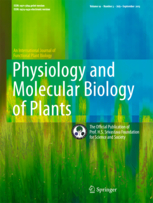 Physiology and Molecular Biology of Plants has retracted a paper about using Darjeeling tea clones against abiotic stress for problems with one of the figures.
Physiology and Molecular Biology of Plants has retracted a paper about using Darjeeling tea clones against abiotic stress for problems with one of the figures.
The specific problem: “falsification/fabrication” of data underlying the figure, which the corresponding author — Sauren Das from the Indian Statistical Institute in Calcutta, West Bengal — couldn’t resolve. Das told us he denies the allegations made by the journal.
Meanwhile, three other papers by Das have been questioned on PubPeer.
Let’s take a look at the retraction note:
This article has been retracted by the editor on account of falsification/fabrication of data in Figure 3 of the above paper, as the corresponding author failed to defend the charge levelled initially at Pubpeer and validated subsequently through an editorial enquiry at PMBP, and also failed to reproduce fresh results sought by the editor. The employer of the author has been intimated.
The 2013 paper, “Antioxidants and ROS scavenging ability in ten Darjeeling tea clones may serve as markers for selection of potentially adapted clones against abiotic stress,” has not yet been cited, according to Thomson Reuters Web of Science.
Das told us by email that he denied the allegations made by the journal:
I repeatedly tried to oppose their allegation, but they were stick[ing] to their point. Even now I am still differ[ing] with them and I strongly believe that I did nothing wrong.
He added that the way the journal treated him was “painful.”
According to Leonid Schneider, a retraction has been in the works for months; he quotes a representative of Springer who said the delay was due to “technical oversight.”
Regarding the delay, the journal’s editor, Nandula Raghuram from the Guru Gobind Singh Indraprastha University in New Delhi, India, told us:
Sometimes complainants have their own immaturities or even vested interests against the author or journal, and may want to hurry the editor into retraction or blame the editor for not responding fast enough. Editors, on the other hand, are more concerned about how to prevent such things in future articles to be published in the journal, without disrupting the editorial flow and timely publishing, rather than worry about how long it takes for publishing the correction/retraction of an already published article.
In the meantime, three of Das’s other papers have been questioned on PubPeer.
Firstly, there are two others in Physiology and Molecular Biology of Plants: “Differential expression of physiological and biochemical characters of some Indian mangroves towards salt tolerance,” which has been cited once since it was published in 2009; and “RAPD and ISSR marker mediated genetic polymorphism of two mangroves Bruguiera gymnorrhiza and Heritiera fomes from Indian Sundarbans in relation to their sustainability,” a 2015 paper that has not yet been cited.
Raghuram told us his journal will look into the PubPeer complaints for the remaining papers:
We don’t track pubpeer regularly, but we will look into specific complaints on any papers published in PMBP, including these, but it takes time to address them without disrupting our journal routine.
The third paper, “Salinity-imposed changes of some isozymes and total leaf protein expression in five mangroves from two different habitats,” was published in the Journal of Plant Interactions in 2010 and has not yet been cited.
Nirjhar Dasgupta, who is based at the same institution as Das, is a co-author on all the papers mentioned above, including the retracted one.
We’ve also reached out to Massimo Maffei, editor-in-chief of the Journal of Plant Interactions, who is based at the University of Turin in Italy. We’ll update the post with anything else we learn.
Hat Tip: Jaime A. Teixeira da Silva
Like Retraction Watch? Consider making a tax-deductible contribution to support our growth. You can also follow us on Twitter, like us on Facebook, add us to your RSS reader, sign up on our homepage for an email every time there’s a new post, or subscribe to our new daily digest. Click here to review our Comments Policy. For a sneak peek at what we’re working on, click here.
“Sometimes complainants have their own immaturities or even vested interests against the author or journal, and may want to hurry the editor into retraction or blame the editor for not responding fast enough. Editors, on the other hand, are more concerned about how to prevent such things in future articles to be published in the journal, without disrupting the editorial flow and timely publishing, rather than worry about how long it takes for publishing the correction/retraction of an already published article.”
What is that supposed to mean? Surely a journal has a responsibility to correct the record as soon as possible.
When a licensed social worker falsifies a note that person not only loses her job, her license can be taken which means she cannot work in the field, period. Find another occupation.